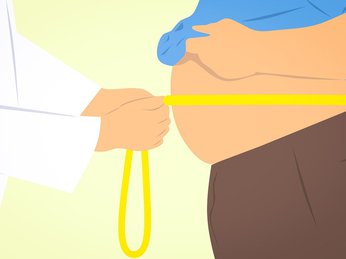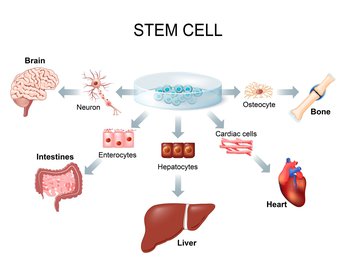MutiVitamin
Are Multivitamins Really Any Good for Your Health?
By Karen Ansel, RDNMedically Reviewed by Lynn Grieger, RDN, CDCES
Reviewed:
For decades, studies have concluded that multivitamins do little, if anything, to prevent chronic disease. Yet a third of American adults pop one every day, according to the National Institutes of Health (NIH). If you’re still wondering if you need a multi, here’s what experts want you to know.
What Exactly Are Multivitamins?
The term "multivitamin" is a bit of a misnomer, especially since these supplements frequently contain more than just vitamins. “Manufacturers may include a combination of vitamins and minerals, but they may also add other ingredients, like herbs, antioxidants, and amino acids,” says Sonya Angelone, RDN, a nutritionist in private practice in the San Francisco Bay area. “Depending on the brand, formulas can vary significantly and are often designed for a specific group based on age, gender, or health condition.”
Even though multis have been around since the 1940s, according to past research there’s still no standard definition of the nutrients they should contain. That’s surprising considering they’re the most popular dietary supplement in the United States, per the Centers for Disease Control and Prevention (CDC).
What Nutrients Are Commonly in Multivitamins?
In a perfect world, a multivitamin would deliver all the vitamins and minerals you need to stay strong and healthy in the proper amounts. In reality, that’s not usually the case, and a growing number of multis exceed the daily value (DV; the recommended amount of a nutrient for most people to consume in a day) for many vitamins and minerals. Why?
“There’s lots of competition in the supplement market, and adding a large dose of a nutrient seems like a ‘good deal’ for the consumer,” says Lisa Young, PhD, RDN, a nutritionist in New York City and the author of Finally Full, Finally Slim. “However, that could be problematic, as more of a nutrient in supplement form is not necessarily better.”
Take fat-soluble vitamins such as A, D, E, and K, for example. Because we store these nutrients in our fat tissue, excessive doses can build up in the body to dangerous levels, according to Mount Sinai. Too much of certain minerals, such as iron, can also be toxic and may interfere with the absorption of other nutrients, according to the NIH.
While formulations differ from manufacturer to manufacturer, the typical multi, for example One A Day by Bayer, contains the following nutrients:
- Vitamin A
- Vitamin C
- Vitamin D
- Vitamin E
- Vitamin K
- Thiamin
- Riboflavin
- Niacin
- Vitamin B6
- Folate
- Vitamin B12
- Biotin
- Pantothenic acid
- Calcium
- Phosphorus
- Iodine
- Magnesium
- Zinc
- Selenium
- Copper
- Manganese
- Chromium
- Molybdenum
In addition, some women’s formulas contain iron. Just know that if you take gummies the list may be considerably shorter. That’s because some nutrients, especially iron, have off flavors that would ruin the candy-like taste that make gummies so popular, reports ConsumerLab, an independent nutrition testing company.
What Are the Touted Benefits of Multivitamins?
If you don’t always eat right, a multi can be a helpful way to fill in nutrient gaps, says the CDC. True nutrient deficiencies are rare in the United States, with fewer than 10 percent of Americans affected, according to info gathered between 2003 and 2006 by the CDC. For the most part, these deficiencies are limited to four nutrients: vitamin B6, vitamin D, iron, and — to a lesser extent — vitamin C. Additionally, no supplement is a match for the nutrient package a balanced diet can provide, says Dr. Young. After all, food doesn’t just supply vitamins and minerals; it also delivers protein, carbohydrates, fat, and fiber.
While much of the seven decades’ worth of research on multivitamins has concluded that taking one won’t likely protect against chronic diseases, the NIH does note that most of those studies aren’t high quality. More often than not, this body of research has relied on people’s reports of their diets for relatively short time spans. That’s not nearly as reliable or effective as studies where researchers give someone a daily multi and then follow them for decades to see if they develop heart disease or cancer.
So without more rigorous research, here is what we currently know about the impact of multivitamins on various conditions.
Cancer The largest and longest randomized trial on multivitamins, known as the Physician’s Health Study, looked at multivitamin use among 14,000 American male physicians age 50 or older. The results showed a modest reduction in total cancer incidence in men who took a multivitamin compared with those who did not, but the group also had a lower average BMI and incidence of smoking than the general population. “Some studies have supported these claims, while others have not shown the same result, so we still don’t know for sure,” says Alexander Michels, PhD, a research coordinator and communications officer at the Linus Pauling Institute at Oregon State University.
Heart disease When it comes to heart health, the Physician’s Health Study was even less optimistic. After following 13,316 male doctors for an average of 11 years, it concluded that multis offered no protection against heart attack, stroke, or death from heart disease.
Brain health “As with cancer, the evidence here is mixed,” says Dr. Michels. “One [of the largest] recent clinical trials on multivitamins, called the COSMOS study, reported a reduction in cognitive decline, but the Physicians Health Study did not report the same effect.”
Bone health Even though the findings are mixed, Michels is still a fan of taking a multivitamin for strong bones. “Bone health is about more than just vitamin D and calcium,” he explains. “Healthy bones require many different minerals and vitamins — most of which are supplied by a multivitamin supplement.”
The Potential Risks of Taking a Multivitamin
Popping a vitamin may seem pretty harmless, but you might be surprised to learn that these supplements can be risky for some people. While they are regulated by the FDA, they are not subject to the same standards as prescription medications. In addition to the potential toxicity when you oversupplement or combine multivitamins with other supplements, research has found that certain vitamins and minerals can have dangerous interactions with several medications, including:
- Antacids
- Antibiotics
- Antiseizure medications
- Blood thinners
- Bisphosphonates, a class of drugs used for osteoporosis
- Methotrexate, used to treat rheumatoid arthritis and some cancers
- Statins, to help lower cholesterol
- Thyroid medication
So, if you are considering a vitamin supplement, be sure to speak with your doctor first. It can also help to time it right. “To avoid a potential interaction, it’s best to take a multivitamin several hours before or after you take your medication,” says Young.
Who Should Take a Multivitamin?
While food is superior to supplements, a multi can be helpful for some people. According to the NIH, these supplements may be a good option if you:
- Are vegan or strict vegetarian
- Have celiac disease The National Celiac Association recommends asking your doctor about multivitamins if you have celiac disease or are following a gluten-free diet, since you will have to avoid many of the fortified foods that supply necessary nutrients.
- Are over age 50 As you age, your body’s ability to absorb, produce, or utilize certain nutrients such as vitamins B12 changes.
- Are pregnant (or are planning to become pregnant), which changes your nutritional needs
- Follow a low-calorie or strict weight loss diet
- Have a chronic illness that interferes with your ability to absorb nutrients
People with a known vitamin deficiency or those who may have a poor appetite will want to take a multivitamin per their doctor’s orders, says Young.
When to Take a Multivitamin
“The best time is when you will remember and do it regularly,” says Young. “For most people that would be in the morning with some food that contains a little bit of healthy fat, like eggs, avocado, or nut butter, to help you better absorb its fat-soluble vitamins.”
What to Look for in a Multivitamin
When it comes to choosing a multi, many nutritionists have a less-is-more philosophy. “Since we also eat food, and hopefully get nutrients from a well-planned diet, I recommend looking for a supplement with no more that 100 percent of the daily value for each nutrient,” says Young. “In fact, I often advise clients who want to take a multivitamin to take it three times a week instead of daily.”
Of course, there are exceptions. So, if you have a health condition or take medication that impairs your ability to absorb certain nutrients, speak with a registered dietitian or your doctor.
Is a Multivitamin Right for You?
The answer really depends on your eating habits and your health. “You certainly can get most of the nutrients you need from the foods that you eat, but people are simply not doing this,” says Michels. “National surveys in the United States have demonstrated this time and time again: Many of us are not consuming enough vitamins A, C, D, and E, or magnesium, calcium, and potassium.” In the end, if your diet is stellar, you probably don’t need one. But if you don’t always eat right, are pregnant, over age 50, or are living with a chronic health condition, a multi might be a good idea, so talk to your doctor.
Top Articles









